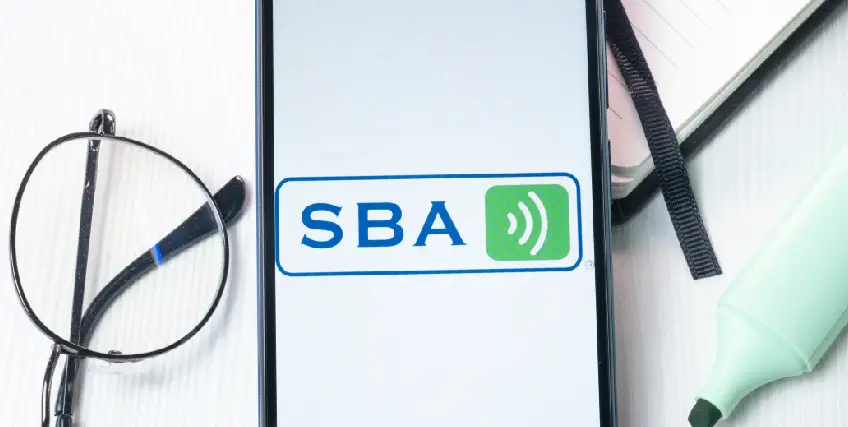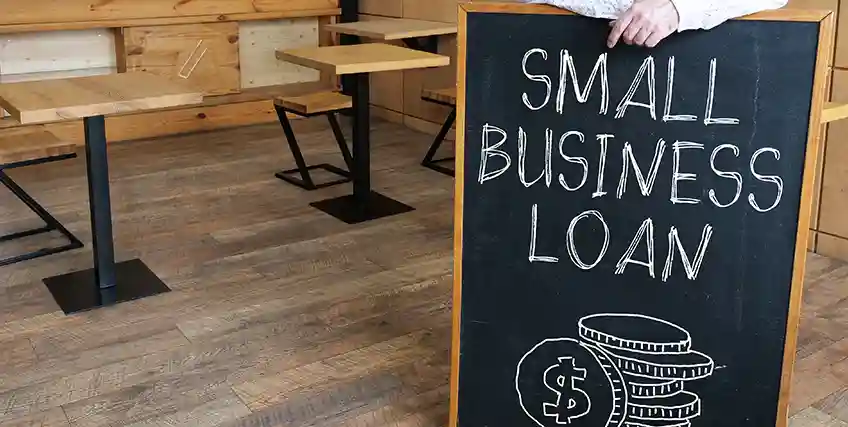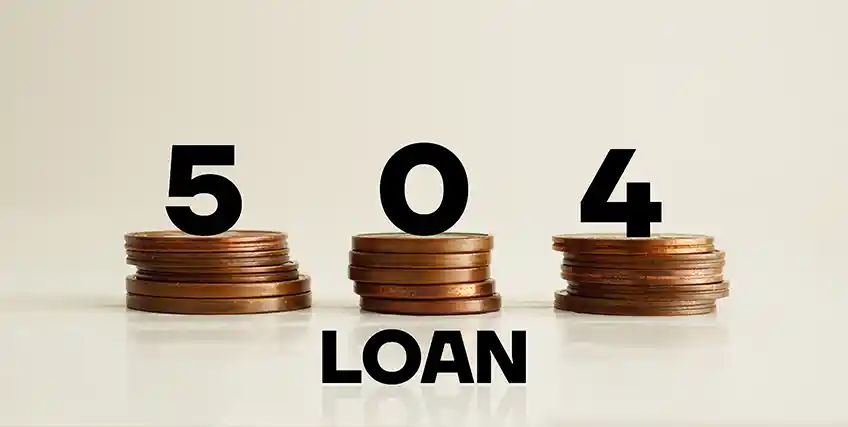How Rising Interest Rates Will Impact SBA Loans
May 13, 2025 | Last Updated on: May 13, 2025

In this article:
- What is an SBA Loan?
- Why are interest rates rising?
- The impact of interest rate increases on small businesses
- Benefits of a variable interest rate SBA loan in 2022
- Alternative financing options
SBA loans are a great financing option for many business owners because they offer multiple loan programs, lower down payments, and lower interest rates than other sources of funding. Now that interest rates have been increased by the fed, we are taking a closer look at what to expect with SBA loans.
What is an SBA Loan?
SBA loan programs provide a business financing option to small business owners where the borrowed funds are partially guaranteed by the U.S. Small Business Administration. The backing of the government means that if the small business owner defaults, the lender will still be paid back for at least a portion of the loan balance. SBA loans provide entrepreneurs and established small businesses with capital from $500 to $5.5 million that can be used for a variety of business needs.
SBA loans are a great option for U.S. small business owners. Since the purpose of the SBA is to support small businesses and entrepreneurs, their loan programs come with counseling and education to support long-term success. The loans are low risk for lenders because of the SBA backing, so they can offer borrowers competitive terms with interest rates and loan fees comparable to non-guaranteed loans. SBA loans offer lower down payments and more flexible overhead requirements than other programs and some SBA loans don’t even require collateral.
SBA loan programs
There are multiple loan programs offered by the SBA. The type of SBA loan a small business owner takes out will determine the repayment terms and may mandate the use of funds, once borrowed. Most lenders that are approved to fund SBA loans can offer all SBA loan types.
SBA 7(a) Loan
The SBA 7(a) loan program is the most common SBA loan for small businesses. These loans are issued for amounts up to $5 million and can be used to make a large purchase like real estate or new business acquisition. If the funds are used for a purchase, a down payment is required. Other uses for SBA 7(a) funds may include providing working capital or refinancing debt.
The terms of the loan depend on the borrower’s purpose but are generally more flexible than similar loan programs. SBA 7(a) loans offer a longer repayment term with lower interest rates and down payments. The SBA doesn’t guarantee 100% of SBA 7(a) loans, but backs between 75% & 85% of the borrowed amount. Lenders pay a participation fee to work with the 7(a) program, so many lenders pass a fee of 3% - 3.75% on to the borrower.
SBA 504
The 504 business loan program provides long-term, fixed-rate loans for up to $5 million. They are also known as CDC/504 loans because they are available through Certified Development Companies (CDCs). The CDC is a nonprofit organization, certified and regulated by the SBA, whose purpose is to bring investment to underserved, low-income areas.
CDC/504 loans are intended to promote business growth and drive job creation by supporting small businesses in the U.S. The loan funds can be used by qualifying business owners for specific purposes including:
- Purchasing land or existing buildings
- Purchasing long-term machinery and equipment
- Building new facilities
- Renovating existing business space
SBA microloans
Microloans backed by the SBA issue up to $50,000 to women, low-income, veterans, or minority business owners. The program provides funds to nonprofits so that the money can be lent back to the community. The terms of an SBA microloan are shorter than traditional loans and do not exceed six years. The interest rates vary but are typically higher than other loans and average about 7.5%.
SBA disaster loans
SBA disaster loans provide relief to business owners, requiring a pledged asset and assessment of damage and repair costs. SBA disaster loans don’t have any fees associated with the program and require that the application be filed directly through the agency. In response to the pandemic, the SBA announced $50 billion in Economic Injury Disaster Loans (EIDL) for small businesses suffering financial damage from the impact of Coronavirus for business owners in declared disaster areas.
How to get an SBA loan
The requirements to be approved for an SBA loan will depend on the type of loan and the lender the borrower chooses. In general, SBA loans require that applicants be a for-profit business located and operated in the United States. The SBA also prefers to work with borrowers who have invested in the company and cannot get funds from any other lender. The SBA has size standards for eligible businesses, but some borrowers with a bad credit score or who are looking for startup funding can still qualify for some SBA loans. Any SBA-approved lender will be able to provide more detailed information about approval requirements.
Why are interest rates rising?
Interest rates have been on the rise recently, which Americans are seeing in higher borrowing costs, mortgage rates, and car loans. While there is no precise answer about why they are rising or what the future holds for the U.S. economy, some insightful information has been released on the subject. In a news conference on May 4, 2022, discussing rising interest and high inflation rates in the U.S., Federal Reserve Chair Jerome H. Powell said there is a “good chance” the United States can tamp down inflation via fed rate hikes without causing a recession. The conference was in response to another half percentage point spike in rates announced by the U.S. Treasury.
You may also like: revenue-based financing during rate hikes
Raising the rate is part of the fed’s strategy to combat inflation, which is at a 40-year high. The half-percent increase was the second of seven forecasted increases in 2022, as the fed works to offset soaring prices and understaffed businesses. Controlling inflation has become near impossible for the federal government since so many businesses were forced to shut down during COVID-19. While the spikes in interest rates are expected to work in favor of the American people, the fed is having to constantly account for negative impacts from the increasing energy prices driven by Russia’s invasion of Ukraine and the continuing supply chain issues.
The impact of rising interest rates on small businesses
Changing interest rates impact small businesses in several ways including slower growth, small business loans, and credit card payments.
Small business growth
Inflation impacts prices, which ultimately affects consumer spending. Small business growth is directly impacted by consumer spending habits, so new small businesses have a harder time establishing a regular customer base when inflation is an issue. Even businesses that have been operating for several years may see a decrease in revenue when rates are high because the public reduces spending. Small business expenses also increase when inflation is high, due to increased supplier costs.
Small business loans
The repayment terms of a small business loan may include a fixed interest rate or a variable interest rate. Fixed interest rates remain the same over the life of the loan, but variable-rates change according to the market rate. So, small business owners with variable-rate loans see an increase in the amount of monthly interest payments due when the rates are increased by the federal government. To understand how a rise in rates affects your monthly payment in dollars, speak with your lender about calculating payments at the new rates.
Credit card payments
Business credit cards are a necessary tool for many small business owners. Credit cards offer a type of revolving credit where businesses are approved for a maximum credit limit and can borrow against that limit as long as it’s available. An advantage to business credit cards is that borrowers pay interest only on the balance carried. When the fed raises the interest rate, it directly impacts credit card payments, so borrowers will be required to pay a higher rate on their carried balances.
Benefits of a variable interest rate SBA loan in 2022
With the recent spike in interest rates, some borrowers have become nervous about SBA loans with variable rates. However, SBA loans are still a great option for small business owners. Here’s why:
- The interest rates are low – The interest rates offered with SBA loans are generally much lower than other types of small business financing. Even as interest rates rise, the rate on the loan will still be considered low.
- There is little change to monthly payments – An increase in the rate of 0.5%, like we saw in May, does not have a significant impact on the payment amount. A $100,000 SBA loan with a 10-year repayment term would see an increase of less than $80 if the higher interest rate was increased from 6.5% to 7.75%.
- Favorable approval rates – Some small business owners have difficulty getting approved for a loan through traditional banks. Traditional lenders often have strict eligibility requirements for loans and entrepreneurs may not have the credit history to be funded there.
- Longer terms – SBA loans offer longer terms than many other types of business financing. While banks may offer long-term loans, the small business owner may be subject to frequent periods of review and even re-approval requirements.
- Lower down payments – While most SBA loan programs require some down payment or collateral. The down payment requirement is lower with SBA loans than traditional term loans.
Alternative financing options
Rising interest rates do impact small businesses, but it is still possible to find smart financing. While SBA loans provide a smart financing option for many small business owners, they are not for everyone. There are many other types of loans that small businesses find beneficial even when interest rates are rising.
Equipment financing
An equipment loan is a financing option for small business owners needing to purchase new business equipment, like machinery or computer software. The purchased asset serves as collateral, making the loan lower risk to the lender, who can then pass on lower down payments and more flexible approval requirements to borrowers.
Term Loan
A term loan is a traditional type of financing available through banks, credit unions, and online lenders. Term loans can be used for any purpose like operating costs, cash flow fluctuations, or purchases. When a small business owner is approved for a long or short-term loan, they receive a lump sum payment upfront and repay the loan with monthly payments of principal and interest. Term loans can be unsecured or secured, where the lender holds an asset, like real estate, as collateral.
Invoice factoring
Invoice factoring and invoice financing are two types of merchant loans. Invoice factoring is an agreement where a business sells their uncollected invoices to an invoice factoring company for a percentage of the value. Invoice financing is a similar financing option where the small business receives lines of credit using the unpaid invoices as collateral.
Bottom Line
Increased interest rates bring some challenges to business owners and impact small business loans, but borrowers should not be hesitant to take advantage of SBA loans or other small business financing options. The experts at Biz2Credit can help you find a funding option that meets your unique business needs, just like they helped Manu Rampal when he needed financing for his small business.
FAQs
Can you negotiate an SBA loan interest rate?
Interest rates for SBA 7(a) loans are negotiated between the borrower and the lender, but they must adhere to SBA-set maximums, which are based on the prime rate or an alternative peg rate. These rates can be either fixed or variable.
Why is my SBA interest rate so high?
SBA loan rates are currently higher, and an 11% interest rate is in line with prevailing market conditions. These rates are tied to the Prime Rate, which has been elevated due to recent policies by the Federal Reserve.
What happens to loans when interest rates rise?
As interest rates rise, your monthly payment will likely increase. This could result in a lower approved loan amount, as lenders assess your debt-to-income ratio, which compares your total debt to your income, when determining loan eligibility.
How to lower SBA loan interest rate?
Yes, you can refinance an SBA loan, but not with another SBA loan. Refinancing is an option available to businesses looking to improve their loan conditions, such as obtaining a lower interest rate or extending the loan term. However, the refinancing loan must come from a non-SBA source.
What are the downsides of the SBA loan?
SBA loans provide low interest rates, flexible use of funds, and substantial loan amounts, making them a popular choice for small business owners. However, they also come with some drawbacks, including a lengthy approval process, collateral requirements, and the need for a personal guarantee.
Frequent searches leading to this page
Term Loans are made by Itria Ventures LLC or Cross River Bank, Member FDIC. This is not a deposit product. California residents: Itria Ventures LLC is licensed by the Department of Financial Protection and Innovation. Loans are made or arranged pursuant to California Financing Law License # 60DBO-35839




